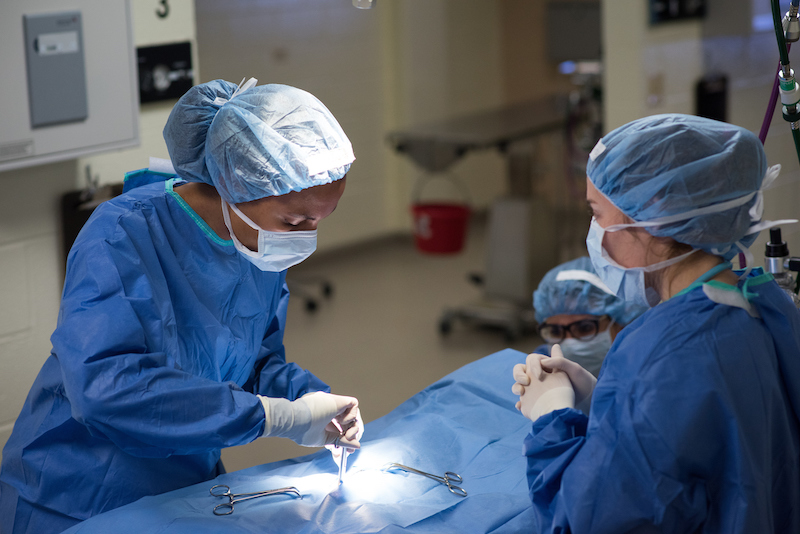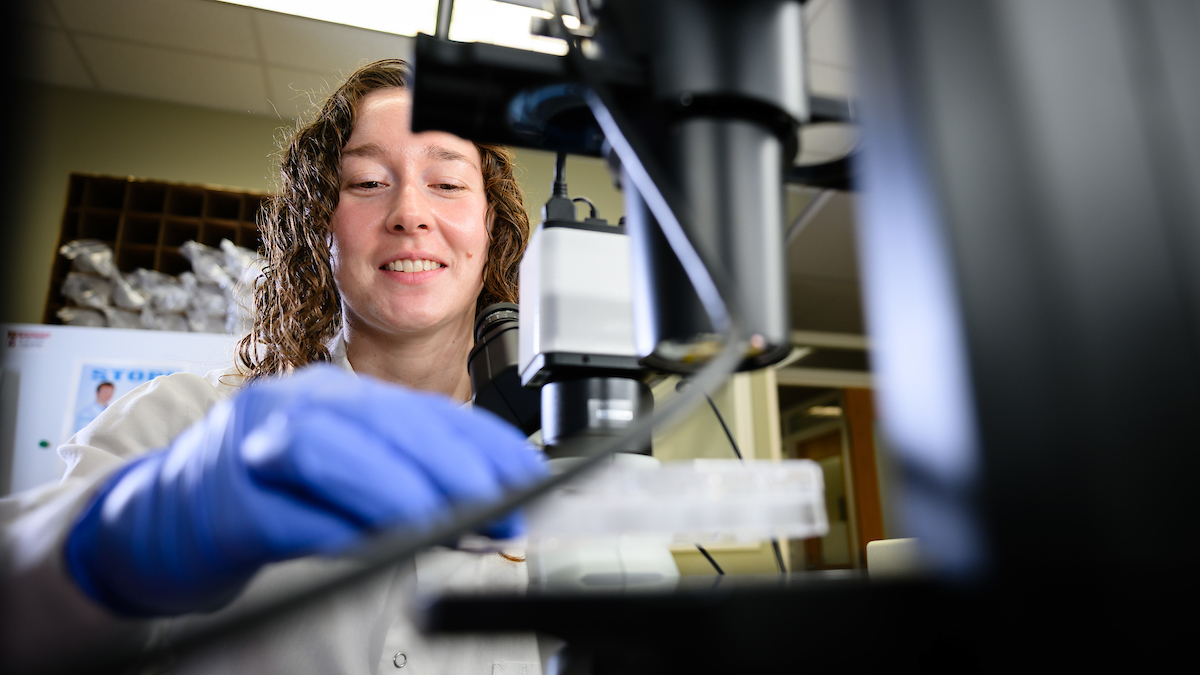Team Players: Study Reveals CVM Communication Training Impact

Veterinary surgery is a team sport, and a big part of the NC State College of Veterinary Medicine’s communication program is helping DVM students become effective teammates as well as the most skillful veterinarians they can be.
Now a new CVM study shows the positive impact team training has on veterinarians-in-training.
For the study “The Impact of Team Training on Perceptions of Team Functioning During 3rd Year Veterinary Surgery,” researchers looked at two different CVM classes, one group formally trained in team communication before third-year clinical surgery and one that did not receive the training before their third year.
Based on self-reflective evaluations filled out by student participants, the study shows major differences within the trained and untrained students, particularly in areas such as seamless preparation, ease of team coordination and the ability to give and receive constructive feedback. Read the full study here.
April Kedrowicz is the lead author of the study, published in Education in the Health Professions. Sarah Hammond and Lizette Hardie co-authored the research.
Kedrowicz, the CVM’s associate professor of communication who leads the college’s three-year communication curriculum, talked with us about the study’s findings.
Was there one difference between the two student groups that was the most revealing?
Team-trained students responded differently to challenges. In particular, they described the use of deliberate positivity, learning from mistakes, following through on tasks and trusting one another as strategies used to navigate team challenges. While both groups were able to practice and develop teamwork skills during the surgery courses, team-trained students had a framework for approaching the team task of surgery.
Moreover, their prior practice with team communication skills, particularly conflict management strategies, afforded them the flexibility and confidence to concentrate on remaining calm and positive with team members during stressful episodes.
When thinking of important traits that lead to successful surgeries, many may first think of technical skills. What does your study ultimately say about the importance of effective communication in surgery?
Effective communication enhances collaboration before, during and after surgery, which ultimately shapes the surgery process. Team communication training positively impacted students’ ability to navigate individual differences, plan and organize their experiences, navigate team dynamics in the moment and respond to stress in a positive and productive manner.

How would you compare working with students on surgical team communication skills to working on client communication skills?
At the core, competent communicators exercise flexibility in their style, adapt to the unique context or environment in which they are communicating and accomplish their objectives or goals during the interaction. So, in both surgery and exam room communication, students need to be able to adapt their message appropriately to enhance understanding, listen actively, ask good questions and assert themselves.
The greatest difference comes from having to navigate the communication styles and personalities of several team members as opposed to one client. This adds a layer of complexity when disagreements arise and can certainly complicate things during times of stress.
Was there anything that surprised you about the effect communication training had on how surgical teams worked together?
Team training impacted their approach to tasks in that they prioritized everyone learning and practicing, even if it meant that they took longer to complete the task. This is in contrast to the control group who typically delegated tasks to team members based on strengths, thus enhancing efficiency. In short, team training resulted in students prioritizing learning over efficiency.
What do you see as the biggest role veterinary communication programs like yours have in shaping new generations of veterinarians?
Communication impacts every aspect of their future careers. By equipping them with an understanding of communication competence across contexts, they will be better prepared to communicate with clients, team members, and the public. In essence, they will be better prepared to navigate the generational, technological, economic and environmental impacts of their work with clients and colleagues.
For more information on the CVM’s innovative communication curriculum, go here.
~Jordan Bartel/NC State Veterinary Medicine


